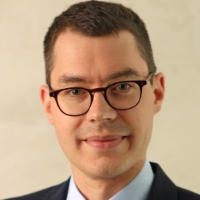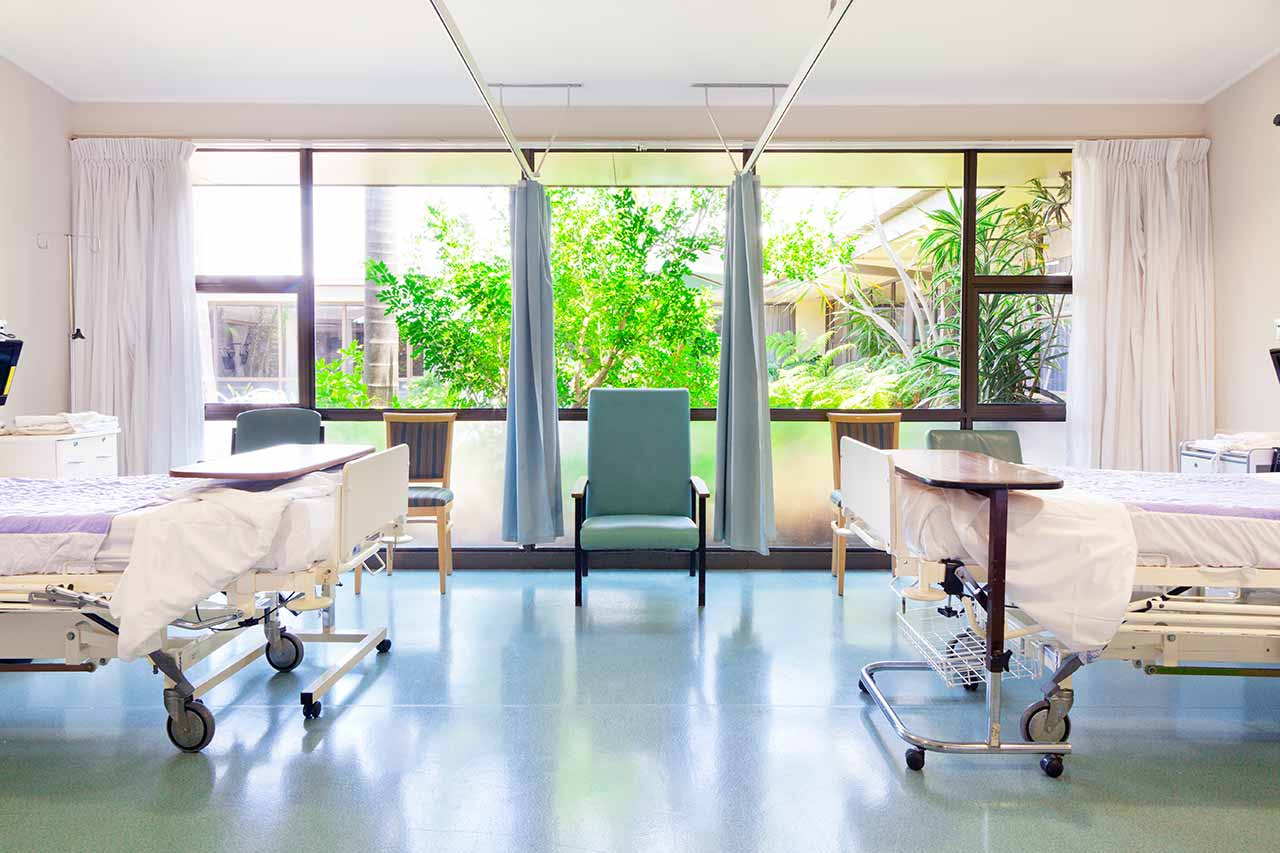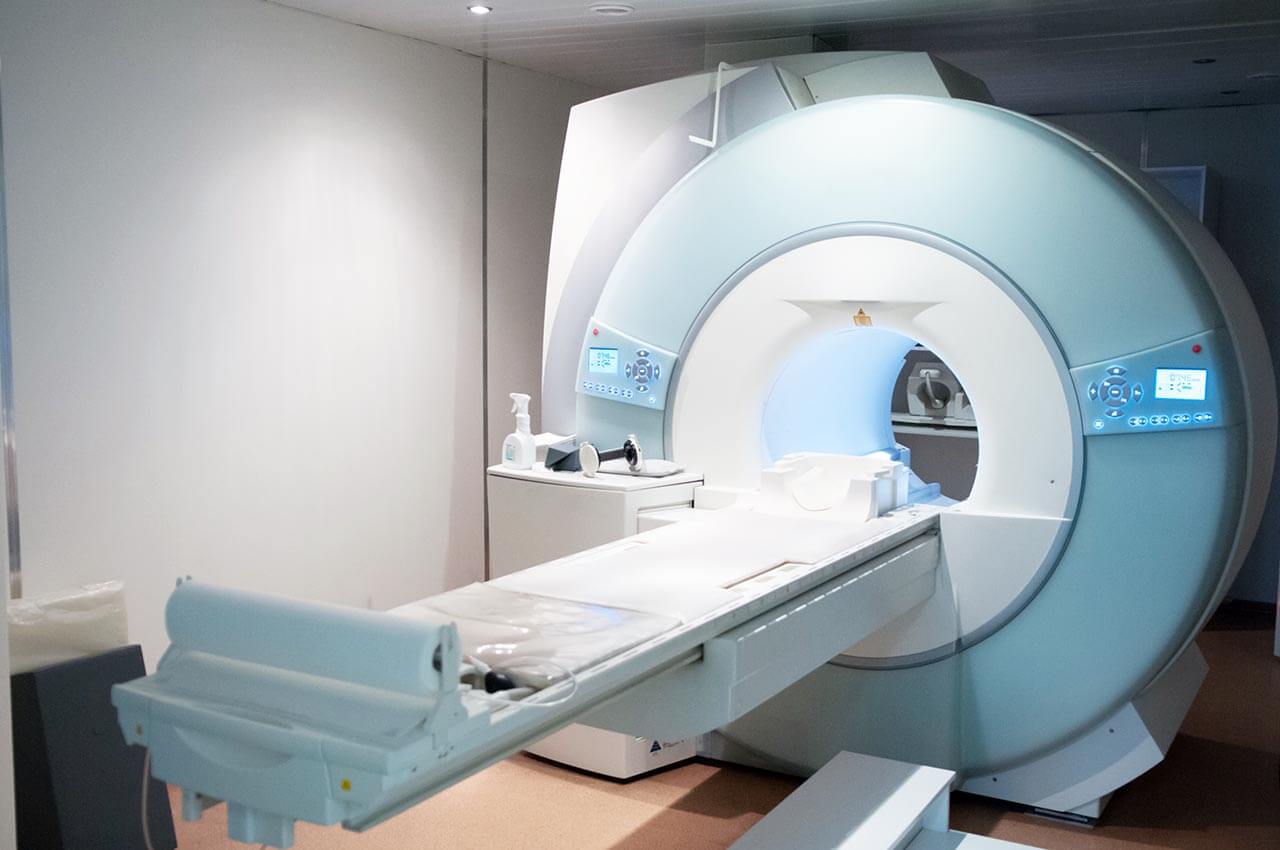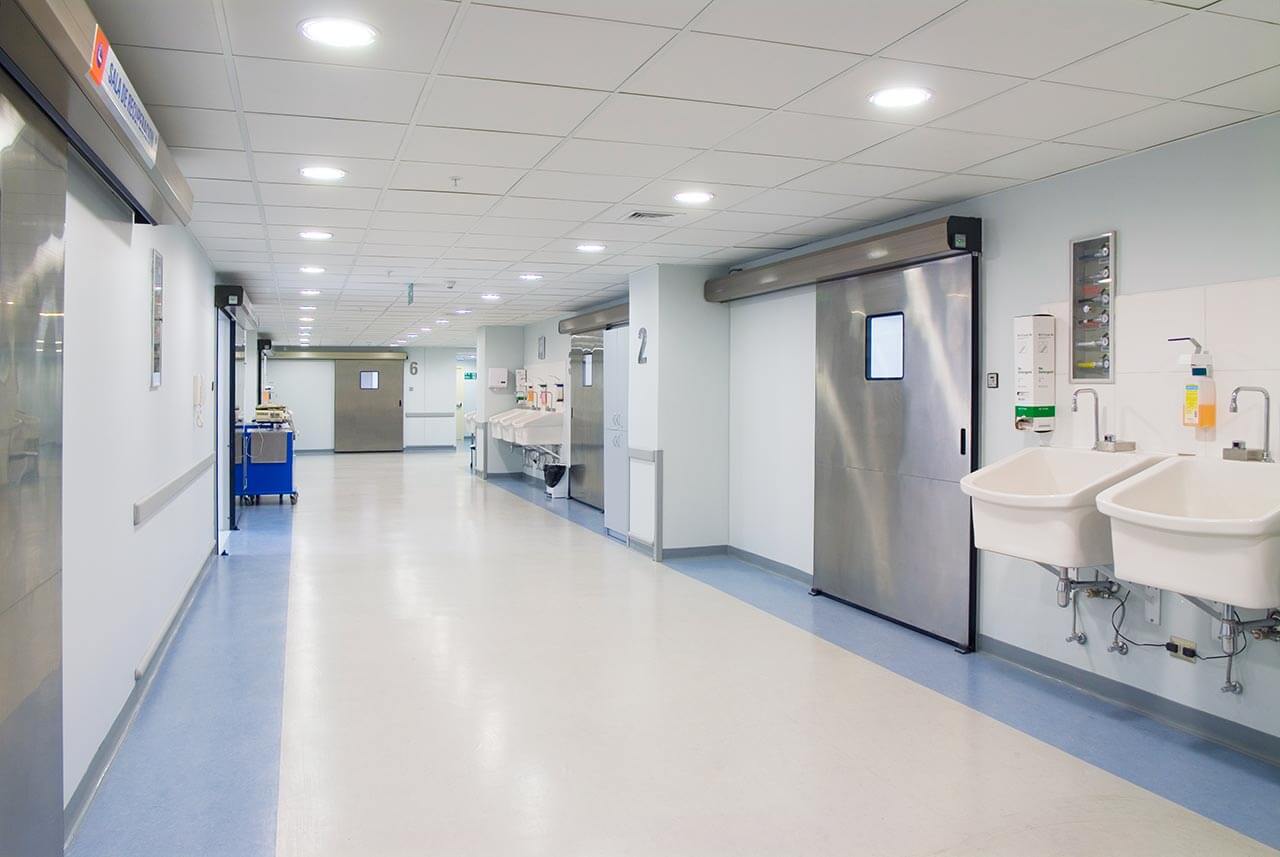
The program includes:
- Initial presentation in the clinic
- clinical history taking
- review of medical records
- physical examination
- laboratory tests:
- complete blood count
- general urine analysis
- biochemical analysis of blood
- inflammation indicators (CRP, ESR)
- TSH-basal, fT3, fT4
- indicators of blood coagulation
- CT planning of radiation therapy
- full course of conventional radiation therapy
- symptomatic treatment
- cost of essential medicines and materials
- nursing services
- control examinations
- consultations of related specialists
How program is carried out
During the first visit, the doctor will conduct a clinical examination and go through the results of previous laboratory tests and instrumental examinations. After that, you will undergo an additional examination, including complete blood count, laboratory assessment of liver and kidney function. Based on the received results, the physician will conduct radiotherapy planning with the help of CT or MRI, make the permanent tattoo marks on the skin and conduct CT simulation in order to assess the accuracy of the rays and the radiation dose. If necessary, related medical specialists will be involved in the elaboration of a treatment regimen (tumor board).
Radiation therapy is carried out as the day hospital procedure, without mandatory admission to the hospital. At each visit, the physician will assess your general condition and the marks on the skin. After that, you will be placed in a shielded radiation therapy room, on a special table.
Each radiation therapy session lasts less than half an hour (including preparation). All this time, doctors and nurses are monitoring your condition, you can communicate with them through a loudspeaker. The procedure is completely painless. Depending on the planned course of treatment, you will visit the hospital from 1 to 3-5 times a week.
After the completion of the radiation therapy course, you will undergo control examinations aimed at assessing your condition and efficacy of treatment. After that you will receive the medical report with detailed recommendations regarding further follow-up and treatment. In the future, you will be able to have a distant consultation with your attending physician and schedule the next course of treatment, if necessary.
Required documents
- Medical records
- MRI/CT scan (if available)
Service
You may also book:
 BookingHealth Price from:
BookingHealth Price from:
About the department
The Department of Radiation Therapy at the University Hospital Saarland Homburg provides patients with the full range of services in this medical field. The primary focus of the department's clinical practice is the conduction of modern types of radiation therapy for treating malignant diseases. The department's specialists also successfully carry out combination treatments, such as radioimmunotherapy and chemoradiotherapy. The department is part of the Cancer Center at the University Hospital Saarland Homburg, which allows radiation therapists to cooperate closely with oncologists, surgeons, and other specialists, providing comprehensive cancer treatment. The department's team of doctors also treats patients with some benign inflammatory diseases. The department's patients most often receive outpatient medical care. There are 24 beds available to accommodate patients in the department. The pride of the department is the advanced technical equipment that allows the specialists to perform high-precision and efficient irradiation. The treatment takes place in a modern building, in the design of which great importance was attached to creating a comfortable environment for the patient. The department admits more than 1,500 patients who receive high-quality European-level treatment every year. The Head Physician of the department is Prof. Dr. med. Markus Hecht.
The department has a highly professional team of doctors, consisting of 19 doctors, 10 medical physicists, and 19 medical technical assistants. All specialists have in-depth knowledge and vast clinical experience in radiation therapy, so each patient receives an individually developed radiation therapy regimen. Doctors strictly meet radiation protection standards. In addition, innovative equipment makes it possible to target the maximum dose of radiation to the pathological focus with virtually no damage to healthy adjacent tissues and anatomical structures.
The department's radiation therapists have at their disposal state-of-the-art medical equipment purchased in 2021 and 2022. It includes Halcyon, Artiste, and TrueBeam linear accelerators, as well as SOMATOM go.Open Pro CT scanner, Elekta Flexitron Afterloader system for brachytherapy, combined CT scanner with Identify linear accelerator for patient positioning, etc.
The department widely uses such modern types of radiation therapy as intensity-modulated radiation therapy (IMRT) and volumetric modulated arc therapy (VMAT). Both irradiation methods allow focusing the maximum dose of radiation on the tumor and, at the same time, the harm from radiation to healthy tissues is minimal. These types of radiation therapy are external and are most often prescribed to patients with head and neck tumors, breast cancer, lung cancer, brain, and spinal cord cancers.
Image-guided radiation therapy (IGRT) is also quite in demand in the department. This type of radiation therapy involves accurate and safe CT-guided delivery of radiation to the tumor focus. Since the tumor may move between radiation sessions (for example, due to bowel or bladder filling) or shift during respiration, image-guided radiation therapy ensures accurate localization of the malignant tumor immediately before the procedure.
The department successfully performs stereotactic radiation therapy, which is often also called radiosurgery. This type of radiation is external and is usually used to treat tumors located in hard-to-reach places, for example, in the head and neck, in the brain, as well as in internal organs (the pancreas, kidneys, lungs, etc.). A feature of stereotactic radiation therapy is the ability to simultaneously deliver very high doses of radiation to a malignant tumor. As a result, already in 1-5 sessions, the department's doctors achieve a good therapeutic result.
The department's range of services includes brachytherapy (internal radiation therapy). The essence of this treatment method is to place a radiation source directly into the tumor, due to which the effective destruction of cancer cells occurs. The main advantages of brachytherapy compared to external beam radiation therapy include minimal damage to adjacent healthy tissue, high radiation efficiency, and a shorter treatment period. In 2022, the department purchased advanced brachytherapy equipment: Elekta Flexitron and Oncentra brachytherapy planning software, imaging systems (ultrasound, CT, and X-ray devices) and a special table. The department's specialists have vast experience in interstitial, superficial, intraluminal, and intracavitary brachytherapy for treating cervical, endometrial, and vulvar cancer, breast cancer, malignant tumors of the skin, esophagus, head and neck neoplasms, etc.
The department's team of doctors also specializes in radiation therapy for treating benign diseases of bones, joints, tendons, and ligaments. Radiation therapy is often used for heel spurs, Achilles tendinitis, "tennis elbow" and "golfer's elbow", inflammatory and degenerative changes in the shoulder joint, inflammatory processes in the hip joint, and Dupuytren's contracture. Low-dose radiation therapy is usually used for benign pathologies. As a rule, the course of treatment lasts about three weeks, during which a patient undergoes two sessions of radiation therapy weekly.
The department specializes in the following types of radiation therapy:
- Intensity-modulated radiation therapy (IMRT)
- Volumetric modulated arc therapy (VMAT)
- Image-guided radiation therapy (IGRT)
- Stereotactic radiation therapy (radiosurgery)
- Total body irradiation
- Brachytherapy
- Surface brachytherapy
- Intracavitary and intraluminal brachytherapy
- Interstitial brachytherapy
- Radiation therapy for benign diseases of the bones, joints, tendons, and ligaments
- Other types of radiation therapy
Curriculum vitae
On October 1, 2022, Prof. Dr. med. Markus Hecht headed the Department of Radiation Therapy at the University Hospital Saarland Homburg. Prior to this, the specialist held the position of Senior Physician in the Department of Radiation Therapy at the University Hospital Erlangen.
Prof. Markus Hecht studied human medicine at the University of Erlangen-Nuremberg. During his studies at the university, he received a scholarship from the German Academic Scholarship Foundation, which was followed by doctoral training in the Department of Radiation Therapy at the University Hospital Erlangen.
During the work on his thesis and habilitation, Dr. Hecht researched drugs with the potential for radiation sensitivity, which can influence the biological effectiveness of radiation therapy. His translational and clinical research was awarded by the Prize from the German Society of Radiation Oncology (DEGRO) and Dr. Hermann Holthausen Prize.
During his work at the University Hospital Erlangen, Dr. med. Markus Hecht headed the Research Center in the Department of Radiation Therapy. The main focus of the specialist's research activities is clinical trials in radiation therapy combined with immunotherapy. When using such combination treatment methods, the immunomodulatory effects of radiation therapy are enhanced, increasing the chances of recovery from oncological diseases.
Photo of the doctor: (c) Universitätsklinikum des Saarlandes
About hospital
The University Hospital Saarland Homburg is the largest hospital in the city of Homburg and the most important medical facility in the region. The hospital, which currently has 30 specialized departments and 20 institutes, was founded in 1947 and operates on the basis of Saarland University. The hospital plays a leading role in medical education, research, and medical care both in the state of Saarland and throughout Germany. With vast experience in serving foreign patients, the medical facility is also widely known in the international medical arena.
The pride of the hospital is state-of-the-art equipment that allows the doctors to perform high-precision comprehensive diagnostics and the most sparing treatment even if a patient has a severe pathology. Patients are offered innovative medicine based on the very latest scientific achievements. At the same time, the hospital offers many therapeutic methods that are used only in leading medical centers in Europe, including da Vinci robot-assisted surgery, CAR T-cell therapy, TAVI and MitraClip catheter-based procedures, innovative laser procedures, etc. Great importance is paid to ethical and social competence. The hospital is constantly improving the work of its medical personnel and infrastructure to provide medical services that meet the highest standards.
As a multidisciplinary medical complex, the hospital offers highly effective treatment of the full range of common diseases as well as rare and severe pathologies. The efforts of the medical staff, which includes over 600 doctors and 2,000 nurses, are focused on the patient and their unique needs and desires. The doctors always devote enough time to personal communication with their patients, provide them with moral support, and are sympathetic to every life situation.
Photo: (с) depositphotos
Accommodation in hospital
Patients rooms
The patients of the University Hospital Saarland Homburg live in comfortable single, double, and triple patient rooms with a modern design. Each room is equipped with an ensuite bathroom with a shower and a toilet, as well as everything else necessary: a comfortable bed, a bedside table, a TV, and a telephone. In addition, enhanced-comfort rooms and specially equipped rooms for people with disabilities are available for the patients.
Meals and Menus
The hospital offers healthy and delicious meals three times a day: buffet breakfast, dinner with a wide choice of dishes for every taste, and a light supper. The menu features dietary and vegetarian dishes. There is also a cafeteria on the territory where one can taste delicious dishes and have a cup of coffee, tea, or some refreshing drinks
Further details
The standard patient rooms include:
Religion
The hospital regularly hosts catholic and evangelical devine services. The services of representatives of other religions are available upon request.
Accompanying person
During an inpatient program, an accompanying person can stay with you in the patient room or in a hotel of your choice.
Hotel
During an outpatient program, you can stay in a hotel of your choice. The managers will help you choose the most suitable options.





